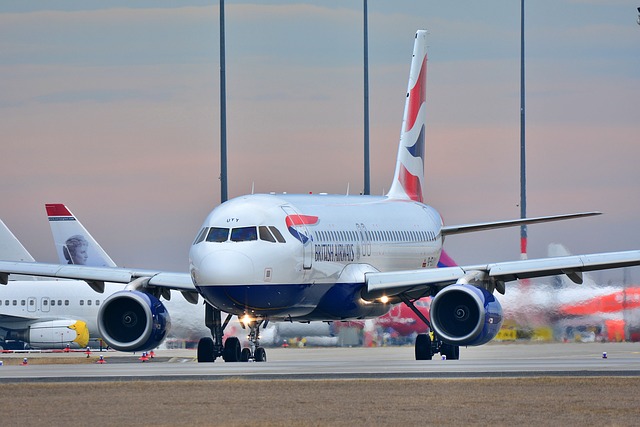English Proficiency Can Enhance Career Pathways in Aviation
In the Netherlands, proficiency in English can significantly enhance career pathways within the aviation sector. This growing field offers various roles that require strong communication skills, including positions in airline operations, air traffic control, and customer service. Understanding the specific conditions and requirements for these roles is essential for those considering a future in aviation.

Aviation professionals worldwide rely on English as their primary communication tool, making language proficiency a critical factor for career advancement. The International Civil Aviation Organization (ICAO) has established English as the standard language for international aviation, creating opportunities for skilled professionals who can demonstrate strong communication abilities.
Understanding the Aviation Sector in the Netherlands
The Netherlands maintains a robust aviation industry centered around Amsterdam Airport Schiphol, one of Europe’s busiest international hubs. The sector encompasses airlines, ground handling services, aircraft maintenance organizations, and air traffic management systems. Dutch aviation companies often operate internationally, requiring employees to communicate effectively with global partners, regulatory bodies, and international crews. The industry offers diverse career paths including pilot training, aircraft engineering, air traffic control, airport operations, and aviation management roles.
The Importance of English Proficiency in Aviation Roles
English proficiency serves multiple functions within aviation operations. Pilots must demonstrate ICAO Level 4 English proficiency to obtain international licenses, while air traffic controllers require similar language skills to manage international flights safely. Aircraft maintenance technicians benefit from English skills when working with international documentation, technical manuals, and certification processes. Airport ground staff regularly interact with international passengers and crew members, making English communication essential for customer service and operational coordination.
Career Pathways and Conditions in the Aviation Industry
Aviation careers typically follow structured progression paths that often require continuous education and certification updates. Entry-level positions may include ground handling, customer service, or technical apprenticeships. Mid-level roles encompass specialized technical positions, supervisory roles, and operational management. Senior positions include chief pilots, maintenance managers, air traffic control supervisors, and airport operations directors. Each career level demands increasingly sophisticated English communication skills, particularly for roles involving international coordination, regulatory compliance, and safety management systems.
Professional development in aviation often requires ongoing training, recertification, and adaptation to new technologies. English proficiency facilitates access to international training programs, certification courses, and professional development opportunities that may not be available in local languages. Many aviation training providers offer courses exclusively in English, making language skills essential for career advancement.
The aviation industry values multilingual professionals who can bridge communication gaps between international teams. English proficiency combined with Dutch language skills creates competitive advantages for professionals seeking positions with Dutch airlines, airports, or aviation service companies that operate internationally.
Career conditions in aviation vary significantly based on role specialization and employer type. Pilots and air traffic controllers often work irregular schedules including nights, weekends, and holidays. Aircraft maintenance professionals may work in shift patterns to ensure continuous aircraft availability. Airport operations staff frequently work around-the-clock schedules to support 24-hour flight operations.
Salary expectations and working conditions depend on factors including experience level, certification status, employer size, and geographic location. International aviation companies may offer additional compensation for multilingual capabilities and willingness to work on international assignments or projects requiring cross-cultural communication skills.
English proficiency requirements continue evolving as aviation technology advances and international cooperation increases. Digital communication systems, electronic documentation, and global safety management systems predominantly operate in English, making language skills increasingly important for technical roles previously considered primarily hands-on positions.
The aviation industry offers long-term career stability for qualified professionals who maintain current certifications and adapt to technological changes. English proficiency supports career mobility between different aviation sectors, geographic regions, and international employers, providing flexibility and growth opportunities throughout professional careers.




